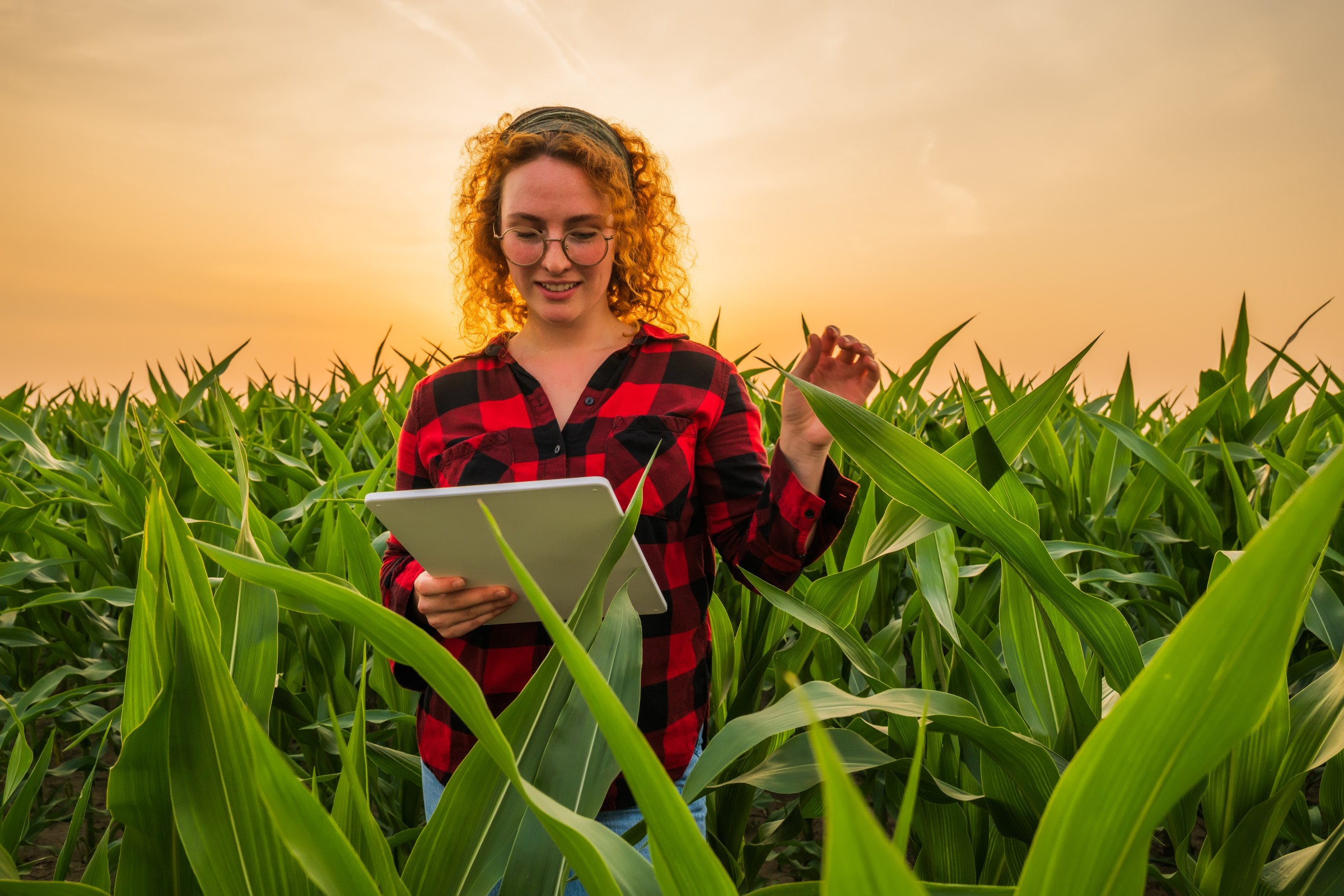Precision Farming: Transforming Agriculture with Data-Driven Decisions

In today’s rapidly changing agricultural landscape, farmers are faced with a growing set of challenges. From climate change and resource scarcity to increasing global food demand, modern farming needs a solution that can boost productivity while minimizing environmental impact. Enter Precision Farming, a revolutionary approach that leverages technology, data, and analytics to optimize every aspect of crop production.
For farmers like John, who runs a 400-acre farm in Iowa, the adoption of precision farming has transformed the way he manages his land. By using tools such as GPS-guided equipment, soil sensors, and satellite imagery, John has been able to increase crop yields, reduce input costs, and make better decisions that benefit both his business and the environment.
Precision farming, also known as precision agriculture, is a farming management concept based on observing, measuring, and responding to variability in crops. Rather than applying the same amount of water, fertilizer, or pesticides across an entire field, precision farming allows farmers to tailor their inputs based on specific needs in different zones within the same field.
At its core, precision farming relies on data—data from sensors, satellites, and drones that monitor soil conditions, crop health, and weather patterns. This data is then analyzed to provide actionable insights that help farmers optimize inputs, reduce waste, and improve productivity.
GPS-Guided Machinery
One of the first precision farming tools John adopted was GPS-guided tractors and harvesters. These machines allow him to plant, irrigate, and harvest with pinpoint accuracy. By following pre-determined paths, his equipment minimizes overlap and skips, ensuring that every inch of the field is used efficiently.
Soil and Crop Monitoring
Another key component of precision farming is the use of soil and crop sensors. By placing sensors in different parts of the field, John is able to monitor soil moisture, temperature, and nutrient levels in real time. These sensors help John make informed decisions about irrigation and fertilization, ensuring that water and nutrients are applied only where they are needed most.
Precision farming is transforming agriculture by making farming more efficient, sustainable, and profitable. Here are some of the key benefits:
Increased Yields
By using precision farming tools to monitor and optimize crop health, John has been able to increase his farm’s overall yields. Satellite imagery and drone-based monitoring allow him to spot early signs of disease, nutrient deficiencies, or pest infestations, allowing for quick intervention. This ensures that crops remain healthy and productive throughout the growing season.
Reduced Input Costs
Precision farming also helps reduce the costs of inputs like water, fertilizer, and pesticides. Since John only applies these resources where and when they are needed, he has reduced his input costs by 20%. Precision irrigation, for example, delivers water directly to the roots of crops, minimizing waste from evaporation or runoff.
Environmental Sustainability
By using fewer inputs and managing resources more efficiently, precision farming is helping farmers like John reduce their environmental footprint. Precision farming reduces the risk of over-fertilization, which can lead to water contamination, and helps conserve water by optimizing irrigation. The result is a more sustainable farming system that supports long-term productivity.
Technology is the backbone of precision farming. From advanced drone imagery to IoT-based sensors, technological innovations are driving the precision agriculture movement forward.
Drones and Satellite Imagery
Drones equipped with high-resolution cameras can capture detailed images of fields, allowing farmers to monitor crop health and detect problems such as diseases or pests early on. These aerial images can also be processed to generate maps showing variability in plant health, which helps farmers adjust their management strategies.
Similarly, satellite imagery provides farmers with a bird’s-eye view of their fields, giving them valuable data on soil moisture, plant growth, and weather conditions. For John, satellite imagery has become a crucial tool for identifying areas of his field that need more attention.
Internet of Things (IoT) in Farming
IoT-based devices, such as soil sensors and weather stations, provide real-time data on environmental conditions. This data can be used to automate irrigation systems, ensuring that crops receive the right amount of water at the right time. John’s farm uses a network of soil sensors that send data to his smartphone, allowing him to remotely monitor soil conditions and make adjustments as needed.
As technology continues to advance, the future of precision farming looks promising. Innovations such as AI-driven analytics, autonomous machinery, and robotic farming will further enhance the ability of farmers to monitor and manage their crops with greater precision.
AI and Machine Learning
Artificial intelligence (AI) and machine learning algorithms are already being used to analyze vast amounts of data collected from fields. These technologies can help farmers predict future crop yields, optimize planting schedules, and identify the best management practices for specific crops and conditions.
Autonomous Farming Equipment
Self-driving tractors and harvesters are the next frontier in precision farming. These autonomous machines can operate 24/7, covering large fields more efficiently than human-operated equipment. John is considering investing in an autonomous harvester that will reduce his labor costs and improve the precision of his harvesting operations.
Precision farming has revolutionized the way farmers like John manage their operations. By integrating data, technology, and smart management practices, farmers can improve their yields, reduce costs, and contribute to a more sustainable agricultural system.
However, implementing precision farming can be complex, requiring access to specialized technology and expertise. This is where platforms like AiDOOS come into play. AiDOOS connects farmers with experts who can help them adopt precision farming techniques, install the necessary technology, and provide ongoing support to maximize their farm's potential.
By leveraging AiDOOS, farmers can ensure they have the right tools and knowledge to succeed in precision farming, paving the way for a more efficient and sustainable future.

For modern telecom enterprises, delivering exceptional QoS is no longer optional—it’s a brand differentiator and a strategic lever for growth. Static provisioning models won’t cut it in a world of hyper-dynamic data usage.